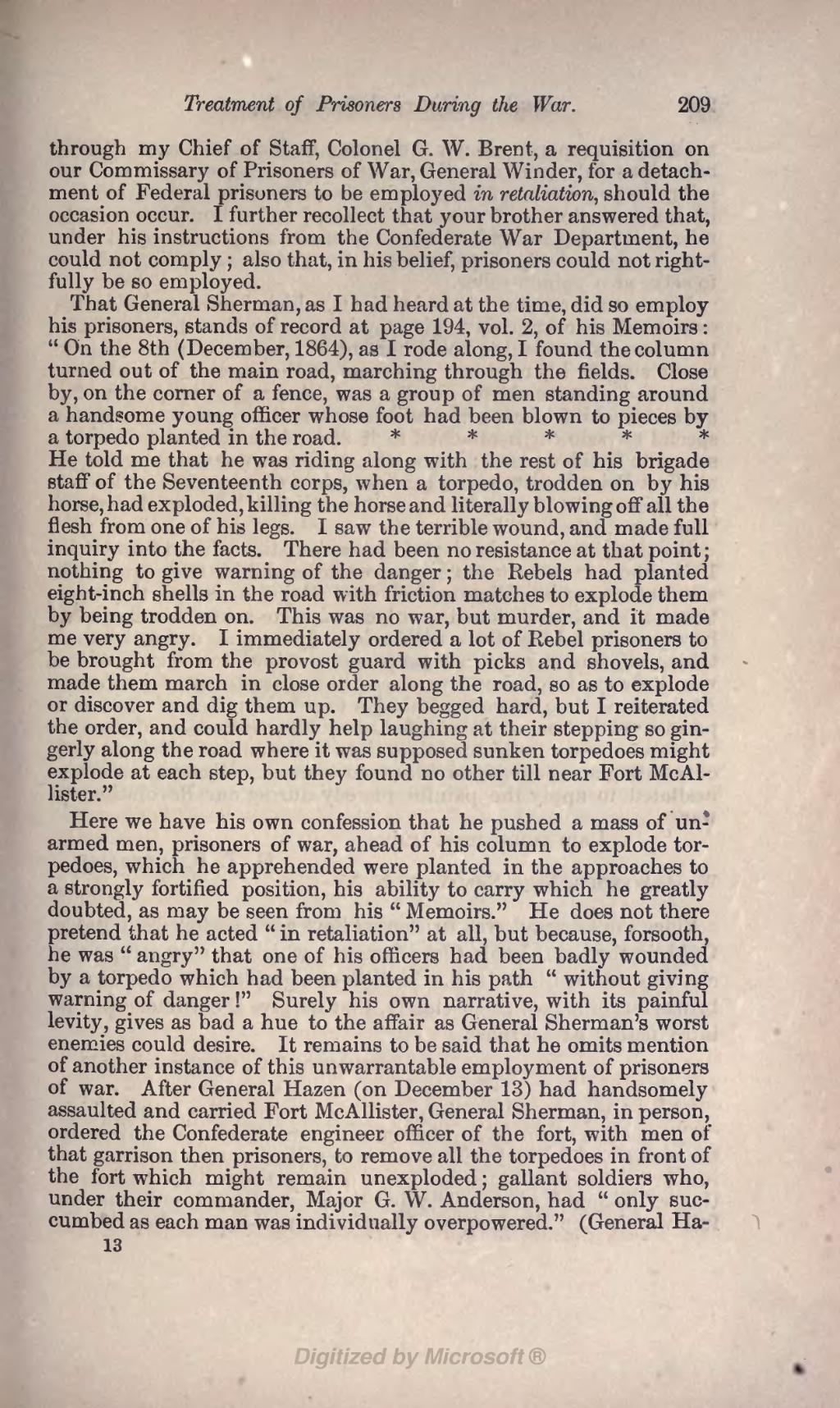through my Chief of Staff, Colonel G. W. Brent, a requisition on our Commissary of Prisoners of War, General Winder, for a detachment of Federal prisoners to be employed in retaliation, should the occasion occur. I further recollect that your brother answered that, under his instructions from the Confederate War Department, he could not comply; also that, in his belief, prisoners could not rightfully be so employed.
That General Sherman, as I had heard at the time, did so employ his prisoners, stands of record at page 194, vol. 2, of his Memoirs: "On the 8th (December, 1864), as I rode along, I found the column turned out of the main road, marching through the fields. Close by, on the corner of a fence, was a group of men standing around a handsome young officer whose foot had been blown to pieces by a torpedo planted in the road. * * * He told me that he was riding along with the rest of his brigade staff of the Seventeenth corps, when a torpedo, trodden on by his horse, had exploded, killing the horse and literally blowing off all the flesh from one of his legs. I saw the terrible wound, and made full inquiry into the facts. There had been no resistance at that point; nothing to give warning of the danger; the Rebels had planted eight-inch shells in the road with friction matches to explode them by being trodden on. This was no war, but murder, and it made me very angry. I immediately ordered a lot of Rebel prisoners to be brought from the provost guard with picks and shovels, and made them march in close order along the road, so as to explode or discover and dig them up. They begged hard, but I reiterated the order, and could hardly help laughing at their stepping so gingerly along the road where it was supposed sunken torpedoes might explode at each step, but they found no other till near Fort McAllister."
Here we have his own confession that he pushed a mass of unarmed men, prisoners of war, ahead of his column to explode torpedoes, which he apprehended were planted in the approaches to a strongly fortified position, his ability to carry which he greatly doubted, as may be seen from his "Memoirs." He does not there pretend that he acted "in retaliation" at all, but because, forsooth, he was "angry" that one of his officers had been badly wounded by a torpedo which had been planted in his path "without giving warning of danger!" Surely his own narrative, with its painful levity, gives as bad a hue to the affair as General Sherman's worst enemies could desire. It remains to be said that he omits mention of another instance of this unwarrantable employment of prisoners of war. After General Hazen (on December 13) had handsomely assaulted and carried Fort McAllister, General Sherman, in person, ordered the Confederate engineer officer of the fort, with men of that garrison then prisoners, to remove all the torpedoes in front of the fort which might remain unexploded; gallant soldiers who, under their commander, Major G. W. Anderson, had "only succumbed as each man was individually overpowered." (General Ha-
